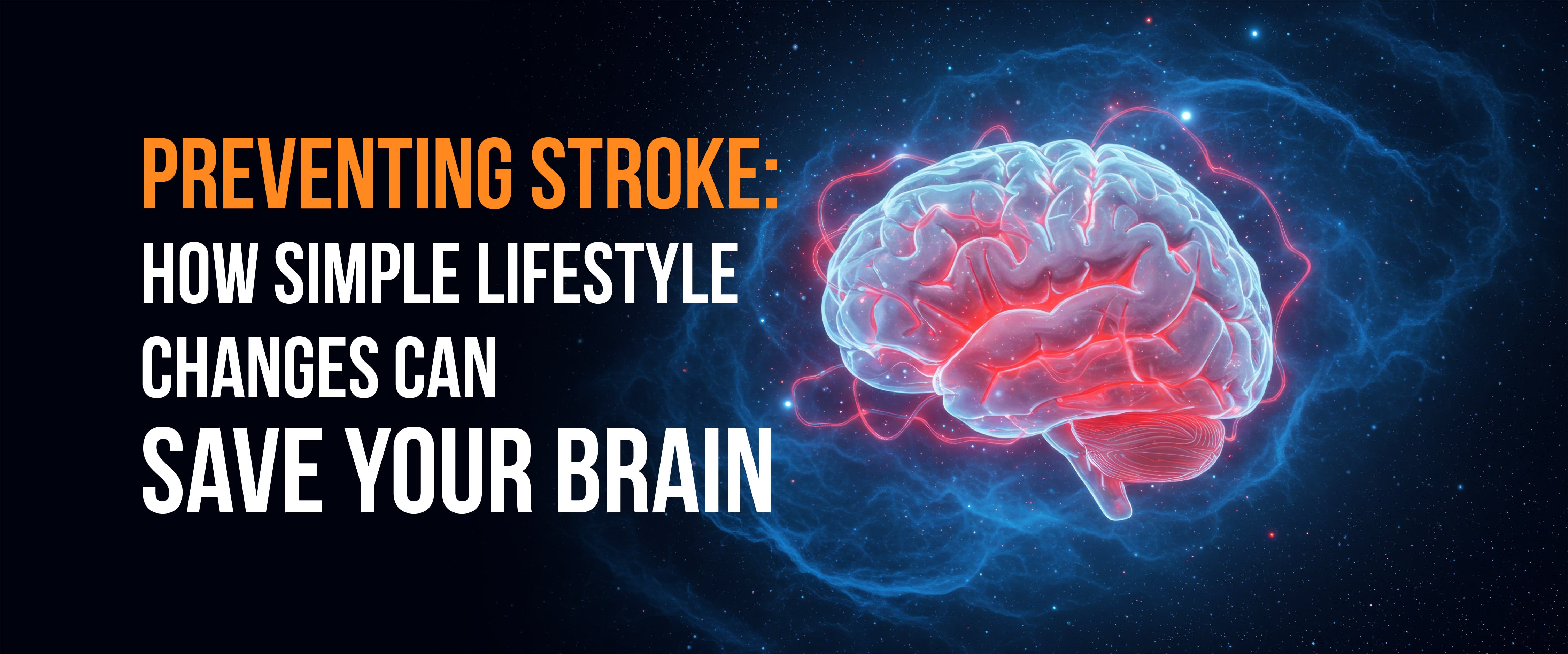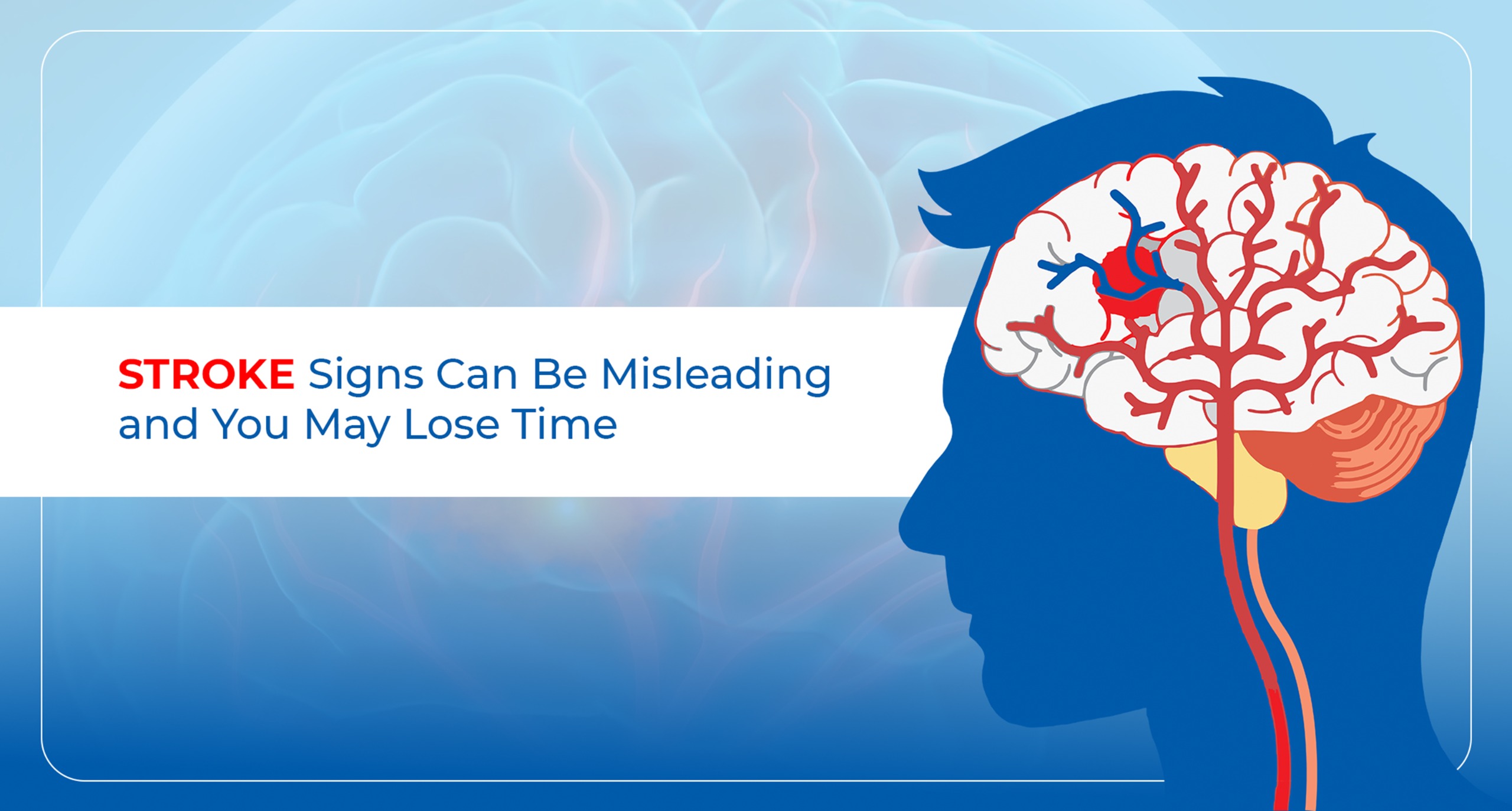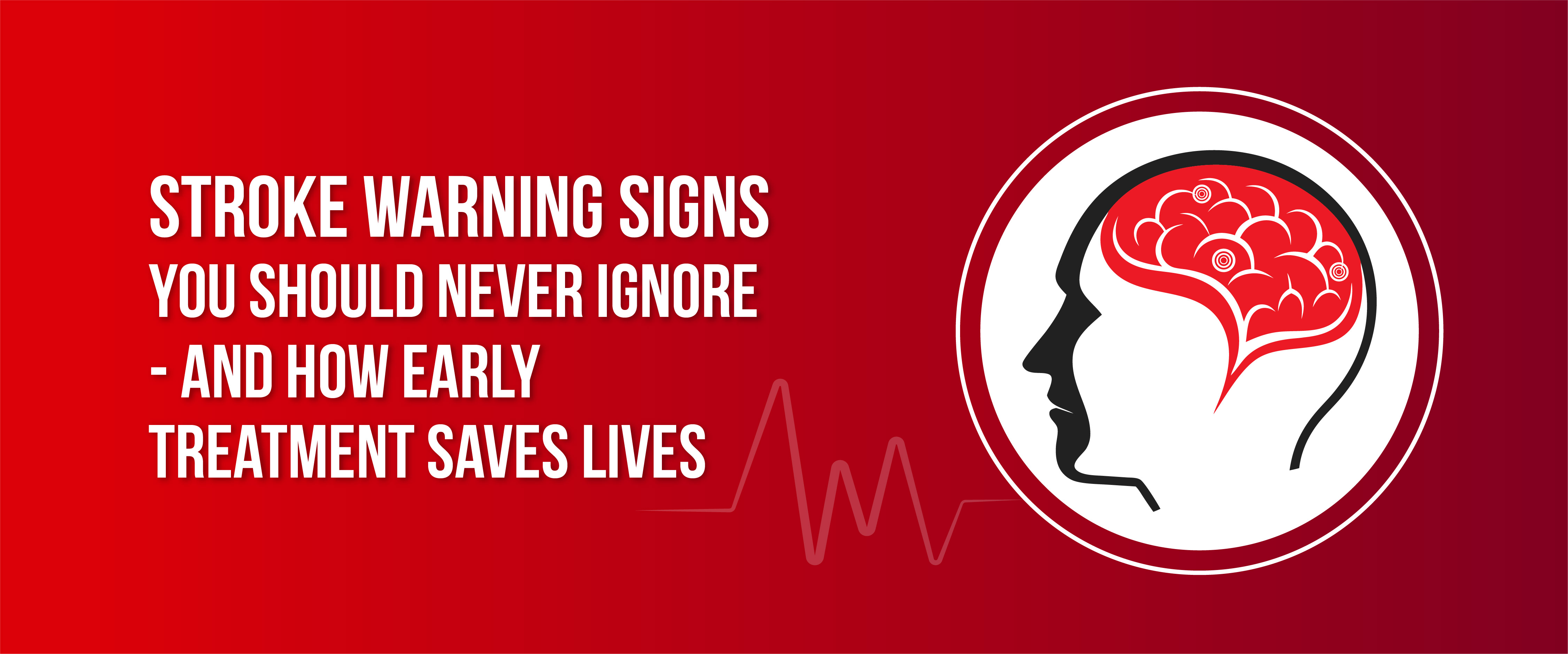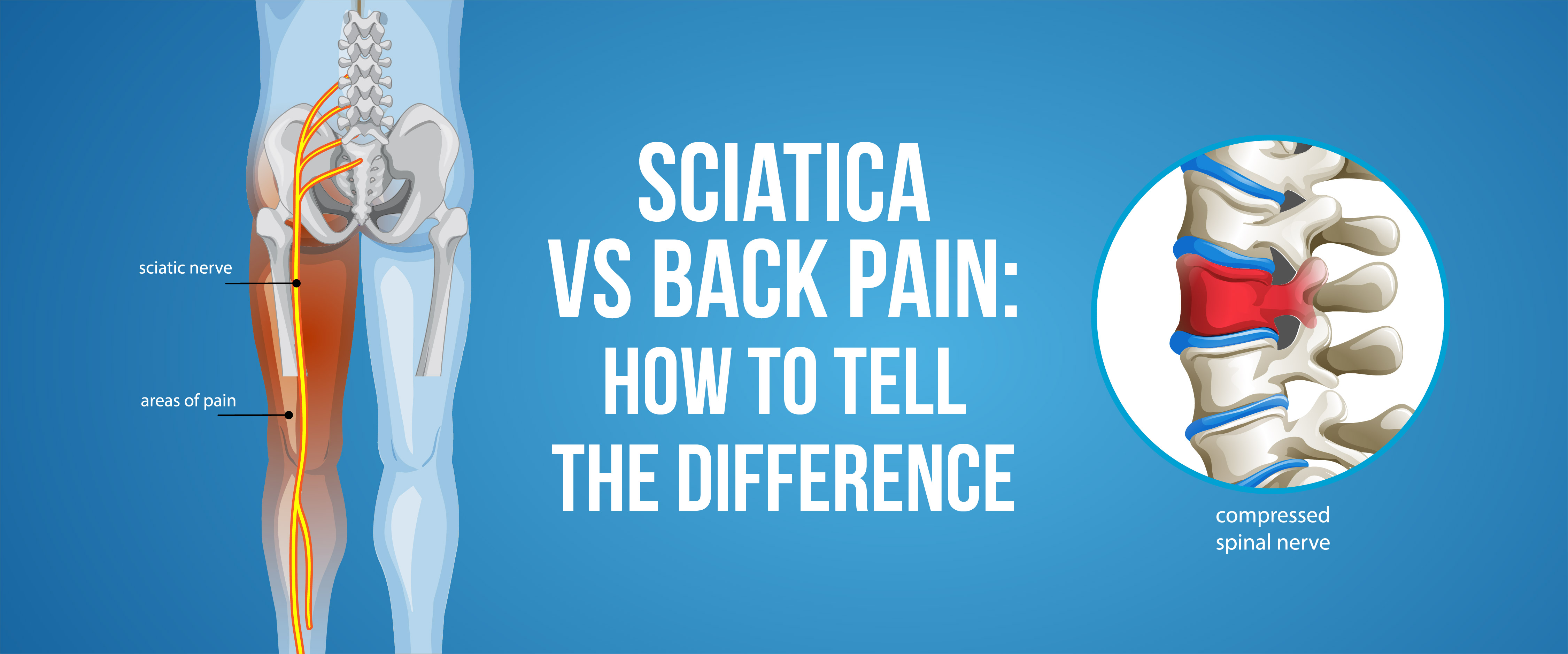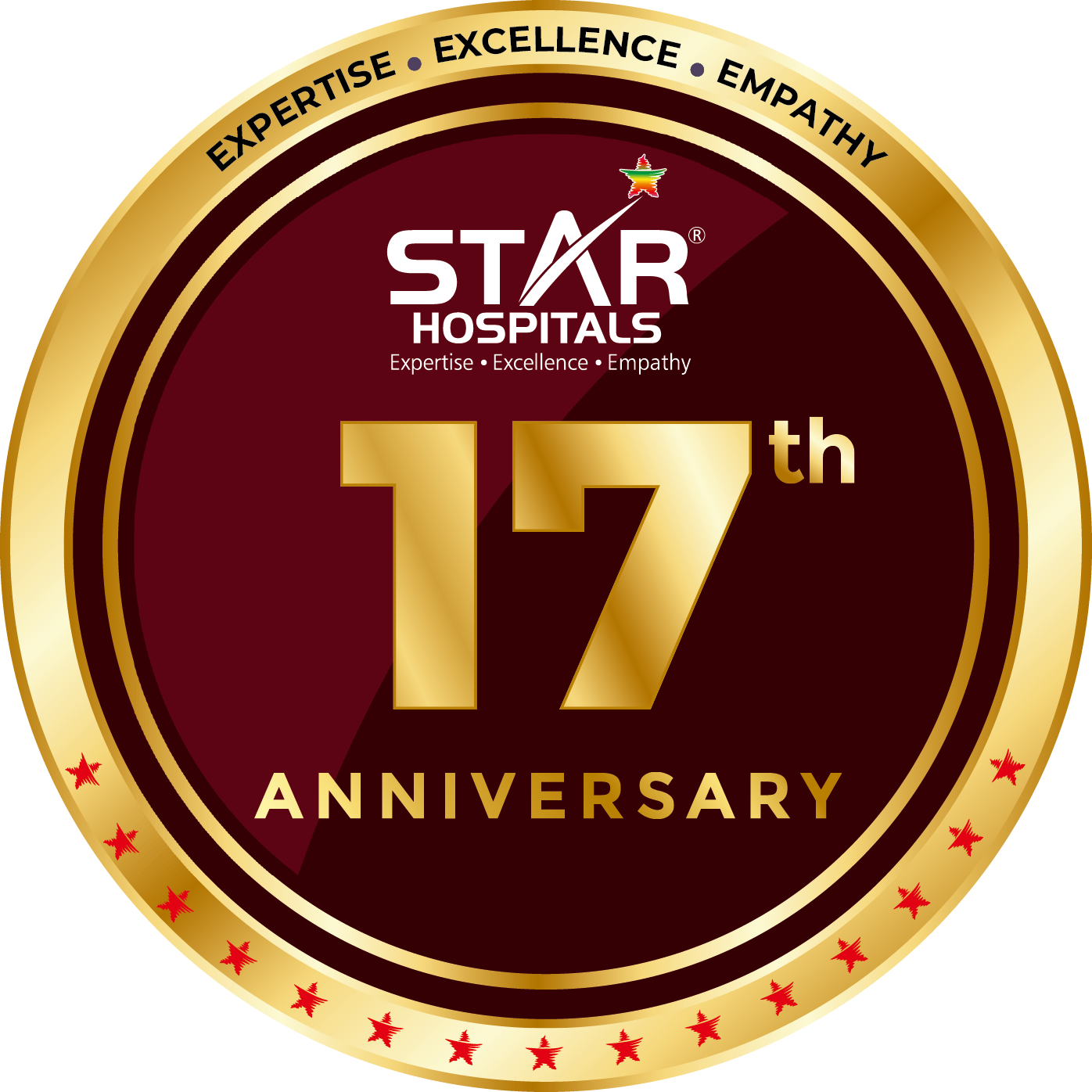The Investment in Your Health
We plan everything, our savings, careers, homes, and even our vacations. We research the best investment plans and safeguard our assets because they represent our future.
But how often do we think about protecting the most valuable asset of all - our brain?
In India, stroke is the fourth leading cause of mortality. According to the World Health Organization, stroke ranks as the second leading cause of death worldwide, and 1 in 4 adults over 25 will experience one in their lifetime.
Understanding the "Brain Attack": What is a Stroke?
A stroke occurs when blood flow to a part of the brain is interrupted. When the brain is deprived of oxygen and nutrients, brain cells begin to die within minutes.
Strokes are broadly divided into two categories:
1. Ischemic Stroke (The Blockage)
This accounts for nearly 80% of all strokes.
It happens when a blood vessel is blocked, preventing oxygenated blood from reaching the brain.
Common causes include:
-
Thrombosis: A clot forming inside a brain artery damaged by plaque.
-
Stenosis: Severe narrowing of major arteries leading to the brain.
-
Embolism: A clot travelling from another part of the body (often the heart) and lodging in a brain vessel.
2. Hemorrhagic Stroke (The Bleeding)
This occurs when a weakened blood vessel ruptures, causing bleeding in or around the brain. The resulting pressure damages surrounding brain tissue, often rapidly and severely.
Recognising and Preventing Stroke
Recognising a stroke is the single most important action that can save a life and preserve neurological function. Stroke is often called a silent killer because both the strokes themselves and their risk factors can develop quietly. Time lost is brain lost. If a stroke is suspected, you must call for emergency help immediately, as thrombolytic therapies (clot-busting drugs) are often time-dependent.
Remember the acronym BE FAST to identify symptoms:
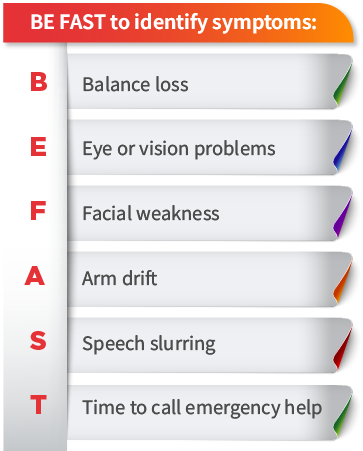
Other, less common, yet serious, signs can include double vision, drowsiness, or unexplained nausea and vomiting.
The Danger of the TIA (Transient Ischemic Attack)
Sometimes, the warning signs may last only a few fleeting moments before disappearing completely. These are known as Transient Ischemic Attacks or TIAs (sometimes called "mini-strokes").
Do not ignore a TIA. They signal a serious, underlying condition that will not resolve without medical intervention. Ignoring a TIA means missing a critical chance to prevent a full, debilitating stroke.
Treatable Stroke Risk Factors
Your overall risk of stroke is the cumulative result of the number and severity of your risk factors. While factors like age, gender, race, and family history are non-modifiable, the most powerful and prevalent risk factors are absolutely within your control.
1. High Blood Pressure (Hypertension)
-
The Problem: Hypertension is undeniably the most potent risk factor for stroke. It can cause a two-to four-fold increase in stroke risk before age 80 by promoting damage to blood vessel walls.
-
The Action: Work with your doctor to control your blood pressure through lifestyle and, if necessary, medication. Focus on maintaining a proper weight, reducing salt intake, increasing potassium-rich fruits and vegetables, and exercising regularly.
-
The Problem: Smoking roughly doubles the risk of ischemic stroke and increases the risk of hemorrhagic stroke up to fourfold. It contributes to atherosclerosis (fatty buildup) in the carotid artery, raises blood pressure via nicotine, and thickens the blood, making clots more likely.
-
The Action: Quitting smoking at any age significantly reduces your risk of stroke, as well as heart and lung diseases. Seek out programs and medications recommended by your doctor.
-
The Problem: Having diabetes is, in terms of stroke risk, comparable to aging by 15 years. It causes severe, destructive changes throughout the body's blood vessels, including those in the brain. Furthermore, high blood glucose during a stroke makes the resulting brain damage more extensive.
-
The Action: Treating and effectively controlling diabetes can significantly delay complications that contribute to stroke risk.
-
The Problem: Common heart disorders like coronary artery disease, valve defects, or irregular heartbeat (like atrial fibrillation—which accounts for one in four strokes after age 80) can cause blood clots to break off and block brain vessels.
-
The Action: Your doctor can treat the underlying heart condition and may prescribe medications, such as aspirin or other blood-thinning therapies, to prevent clot formation.
-
The Problem: Excess Low-Density Lipoprotein (LDL) cholesterol—the "bad" cholesterol—leads to atherosclerosis, the primary driver of blood vessel narrowing that causes both strokes and heart attacks.
-
The Action: Control your cholesterol through diet, exercise, and pharmacological intervention if advised by your physician.
-
The Problem: These two factors are major contributors to the other treatable risks—hypertension, diabetes, and heart disease. Specifically, a high waist-to-hip ratio increases the risk of ischemic stroke threefold.
-
The Action: Adopt a regime of regular physical activity and focus on achieving and maintaining a healthy body weight.
Treatment & Prevention Options
Simple screening tests, such as neck Doppler ultrasound, can detect arterial narrowing early and help prevent a major event.
Early recognition, lifestyle control, and timely treatment can make all the difference,
turning a potential tragedy into a story of survival and recovery. The best time to prevent a stroke is before it happens. Stay active, eat healthy, manage blood pressure and blood sugar, avoid smoking, and schedule regular check-ups. A few small lifestyle changes can protect your brain, and your future.
Comprehensive Stroke Care at STAR Hospitals
The Comprehensive Stroke Care Programme at STAR Hospitals is designed to deliver rapid, coordinated, and expert care to stroke patients. The hospital’s approach ensures that every patient receives timely intervention, from emergency response to complete rehabilitation, backed by advanced technology and a multidisciplinary team of specialists.
- 24x7 Stroke Emergency Team: A dedicated team of neurologists, neurosurgeons, and emergency physicians available round-the-clock for immediate stroke response.
- Advanced Neuroimaging: Equipped with high-end CT, MRI, and digital angiography systems for quick and accurate stroke assessment.
- Cutting-edge Interventions: Specialised in thrombolysis and mechanical thrombectomy for acute ischemic stroke management.
- Dedicated Neurocritical Care: A fully equipped Neuro ICU provides continuous monitoring and intensive care for critical stroke cases.
- Holistic Rehabilitation: Comprehensive post-stroke rehabilitation including physiotherapy, occupational therapy, speech therapy, and cognitive retraining.
